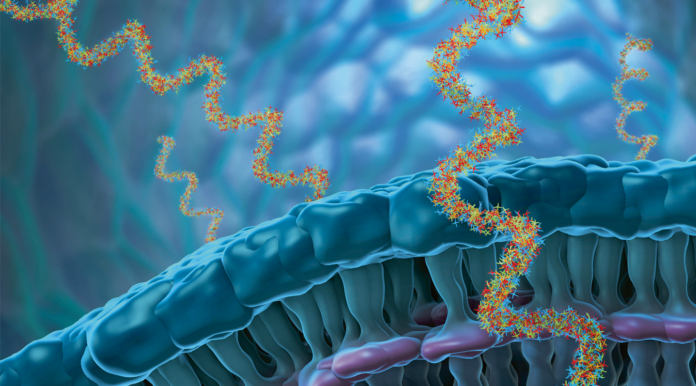Despite what you may have heard, HIV is not an autoimmune disease. It is an infection that can lead to AIDS, which is a disease that has no cure. In this article, we will discuss most important question: Is HIV an Autoimmune Disease ?
Also Read: fortis hospital chandigarh
Acquired immune deficiency syndrome
AIDS (Acquired Immune Deficiency Syndrome) is a condition that occurs when the human immune system is weak and can’t fight off infections. AIDS is usually caused by HIV (Human Immunodeficiency Virus). It is a sexually transmitted disease and can be passed through the bloodstream through direct contact with infected material. In the early stages, AIDS may not cause any symptoms. However, in the later stages, the disease causes the immune system to be dysfunctional.
AIDS is caused by HIV, which weakens the immune system and enables viruses to take advantage of the weakened body. HIV is transmitted by sexual contact, and it is also passed through breast milk.
In addition to AIDS, HIV can cause a number of other immune system disorders. Some of the diseases that may occur are: granulomatosis with polyangiitis, X-linked agammaglobulinemia, and multiple myeloma. In some cases, AIDS can be treated with high doses of immunosuppressive drugs. Other diseases may occur if a person’s immune system is weakened by cancer, malnutrition, radiation, or other types of treatments.
Another type of acquired immune deficiency is a temporary deficiency. A temporary deficiency can be caused by alcohol or smoking, and it can also be caused by medicines used to treat organ transplants. These temporary acquired immune deficiencies can be treated with medicines like corticosteroids or immunoglobulin therapy.
Primary immune deficiencies are genetic disorders that affect the immune system. They are caused by a gene expression problem or by the loss of immune defenses. Typically, primary immunodeficiency is diagnosed during childhood. However, they can also occur as an adult.
Acquired immune hepatitis
During the 1940s, a chronic hepatitis with elevated serum proteins was described. This condition was later termed chronic active hepatitis. It was characterized by elevated serum transaminases, plasma cell infiltration, and a female preponderance.
The occurrence of this disease is triggered by an autoimmune response to self-antigens. It is believed that the immune response is initiated by the presentation of self-antigens to TCR on uncommitted CD4 T-helper (Th0) lymphocytes.
The role of Th17 is less understood. It promotes the secretion of proinflammatory cytokines by hepatocytes, leading to the IL-6 and TNFa. These cytokines are a major component of the Th1 differentiation loop. The IL-2 receptor is expressed in trimeric form on regulatory T cells. The production of interferon g (IFNg) also contributes.
A recent study in China found that the incidence of IL-17-positive cells in AIH patients was higher than in chronic hepatitis B and CHB patients. This finding is intriguing, as AIH is thought to be an autoimmune disease. It would be possible to screen for epitopes that were reacted to by these patients.
A 32-year-old African-American man with advanced AIDS was diagnosed with autoimmune hepatitis. He was treated with prednisolone and was still receiving antiretroviral therapy even though his CD4 count was low.
Autoimmune hepatitis is characterized by plasma cell infiltration and the presence of circulating autoantibodies. The degree of CD25 T cells in the liver represents the extent of effector T cells.
HIV progresses to AIDS within 10 years
AIDS is the culmination of HIV, a virus that destroys your immune system’s CD4 cells. Without treatment, HIV can progress to AIDS within ten years. The symptoms of HIV and AIDS can vary by phase of infection.
During the initial stage of HIV, you may not experience any symptoms. However, the virus will slowly weaken your immune system, leaving you vulnerable to infections. It can be transmitted through blood, needles, and breast milk.
The best way to prevent HIV is to avoid sexual intercourse. This can be done by using latex condoms, not sharing needles, and avoiding sexual partners who haven’t been tested for HIV. It also helps to take antiretroviral medications. Antiretroviral medications can stop the progression of HIV and allow most people with HIV to live healthy lives.
During the second stage of HIV, you may experience mild to no symptoms. However, HIV will continue to damage your immune system and make it susceptible to infections.
During this stage, you may have a high viral load. The viral load will make you more susceptible to pneumonia, heart disease, and certain cancers.
The best way to prevent HIV is by getting tested and taking the medication prescribed by your doctor. This will allow you to live longer and prevent AIDS. The treatment will also keep the virus level in your body low.
Getting tested can be done at your doctor’s office or a community health center. The test will measure your saliva and blood and check for antibodies produced in response to the virus.
Hepatitis C co-infection
Approximately 15 to 30 percent of people living with HIV will develop a coinfection with hepatitis C (HCV) at some point. This type of infection is a major cause of liver-related morbidity and mortality among people with HIV. People who develop this type of infection will require treatment with antiviral drugs.
The viral infections that cause liver disease include hepatitis C, hepatitis B, and hepatitis D. These infections may be caused by environmental toxins, exposure to chemicals, and autoimmune disorders. The viruses can be passed through blood to blood contact, sexual contact, and body piercing with contaminated equipment.
The risk for hepatitis C infection is especially high among people with HIV, but the virus can also be passed from mother to child. During pregnancy, hepatitis C can be transmitted through contaminated water or through fecal matter. It is not usually fatal, but it can cause decompensated cirrhosis. This is a very serious condition that can lead to liver cancer.
There are a number of new antiviral drugs available that can cure hepatitis C in people living with HIV. These medications are used to treat both acute and chronic infections. In addition to these medications, patients may require further testing to ensure that they are cured.
Liver disease is the primary cause of illness for people living with HIV. In addition to causing liver disease, hepatitis C can also make the liver less able to process medicines. Depending on the severity of the infection, patients may need to undergo a liver transplant.
Pre-exposure prophylaxis
Using pre-exposure prophylaxis for HIV is a great way to reduce your risk of acquiring the virus. However, it’s important to know that PrEP is not for everyone. It may be a good idea to consider a combination of prevention methods.
PrEP is a daily pill that works by preventing HIV from spreading throughout your body. It’s important to remember that the pill is only effective if you take it on a regular basis. The pill is available in two forms – one is the long-acting injectable form and the other is a daily oral form. If you’re interested in PrEP, the best thing to do is talk to your doctor.
PrEP works best when it’s taken as prescribed. This means taking it every day and for at least 28 days after your last potential exposure to the virus. You should be aware that you could be exposed to STIs while you’re on PrEP.
It’s also possible to protect yourself from STIs by taking care to use condoms. Condoms prevent transmission of HIV and are especially effective when used during oral sex. They can also be used during vaginal sex. You can also prevent transmission by making sure you don’t share needles and injection equipment with others.
The best way to protect yourself from HIV is by avoiding anal and vaginal intercourse. Another good way to prevent HIV is by taking two antiretroviral medications.
AIDS is not an autoimmune disease
AIDS is a disease caused by the human immunodeficiency virus (HIV). This virus destroys T-lymphocytes, a type of white blood cell, in the human body. This results in a decreased immune response and leaves the person vulnerable to other infections. This can happen to people of any age, and it is the reason why AIDS is a leading cause of death worldwide.
There are several medications available for the HIV virus. These medications can help to control the disease and improve the quality of life of those affected. Some people may even be able to take just one pill a day.
The HIV virus is a sexually transmitted disease that can be contracted through sharing needles or contaminated injection drug paraphernalia. It can also be transmitted through contact with infected blood or body fluids.
There is no cure for AIDS, but medications have shortened the length of the illness for many people. There are also several international organizations that are working to expand the availability of these lifesaving medications in resource-poor countries.
There are several antiretroviral drugs available to treat the virus, and most people with HIV are able to live healthy and long lives. However, stopping therapy can result in a rebound of the virus, so it is important to continue therapy in order to avoid becoming infected in the first place. This is especially important if you are pregnant or have an existing medical condition. I think, you have to get all information about Is HIV an Autoimmune Disease ?

















